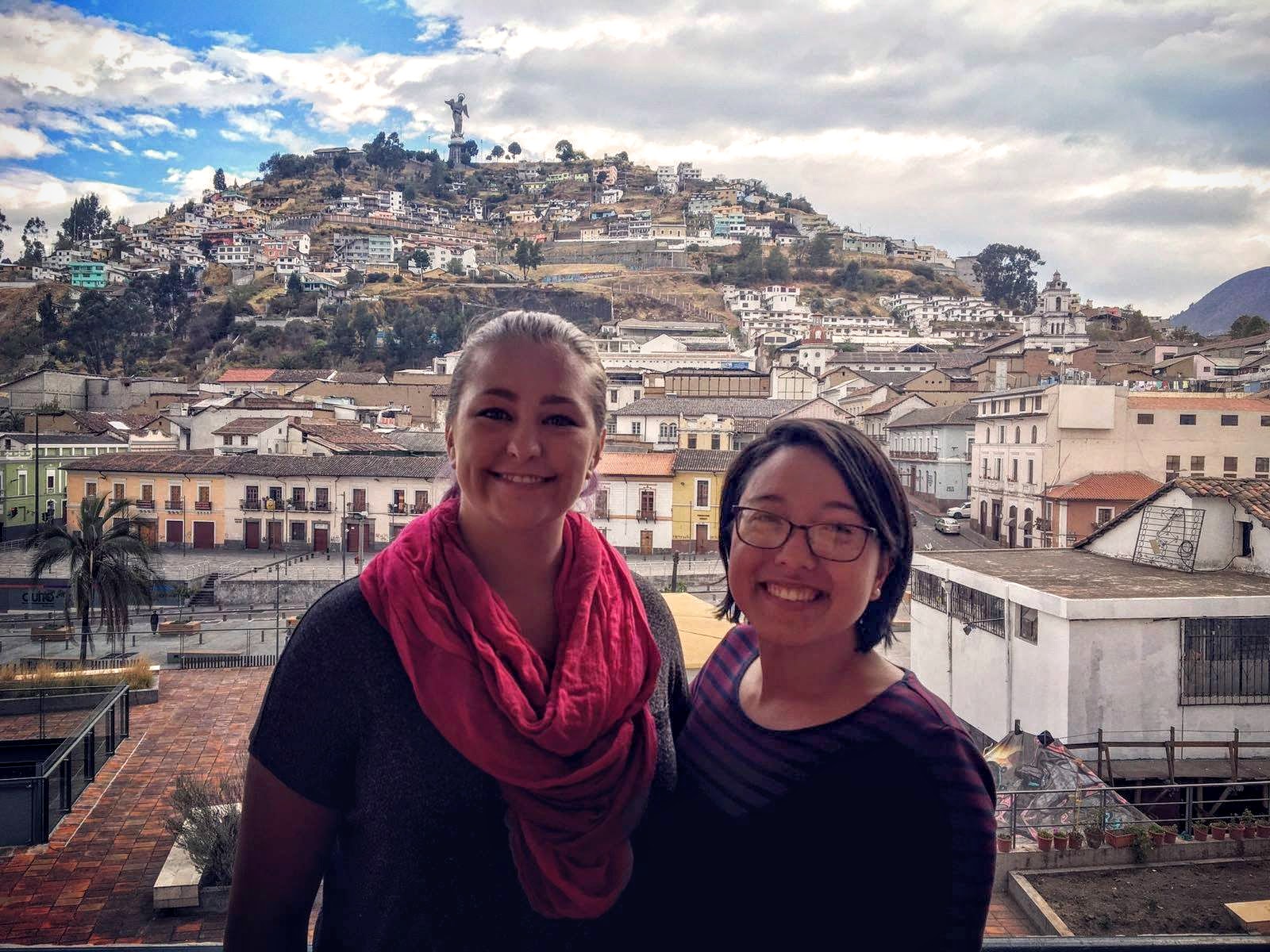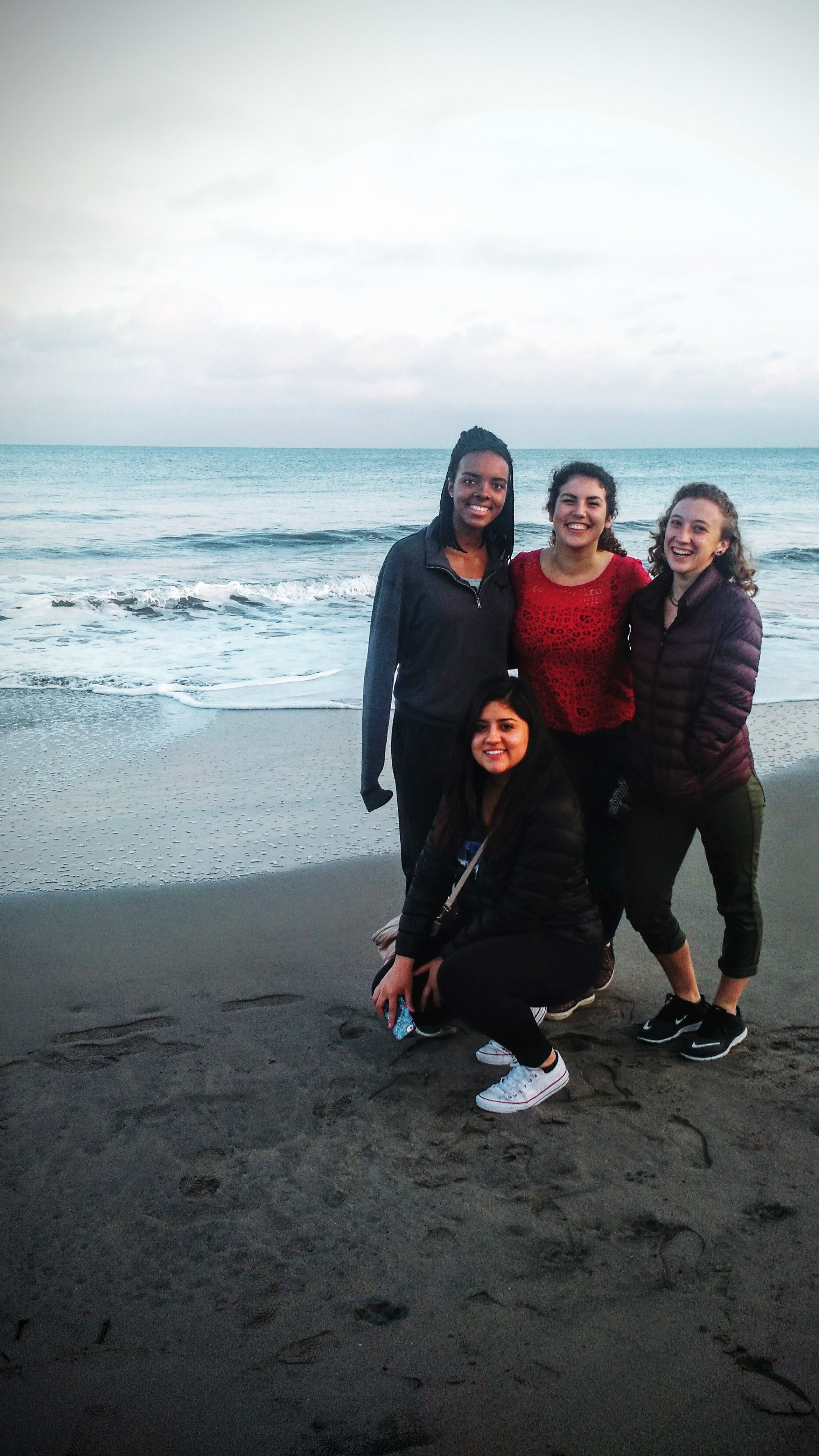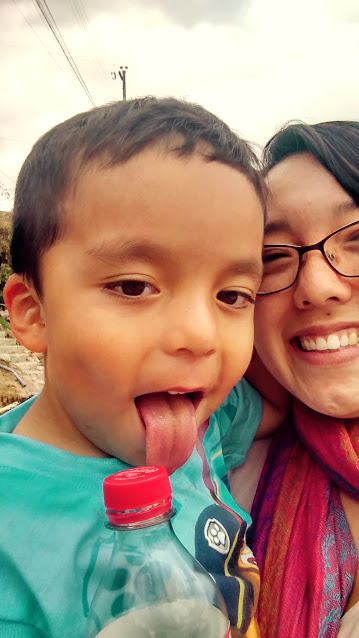The title is a little funnier than you might think. Gringos (the Spanish term for anyone from a non-Spanish speaking country, although more specifically people from the U.S. who don’t speak Spanish very well) put Ecua in front of everything when speaking English to refer to something being more Ecuadorian. For example, to ask if someone has a phone number that works in Ecuador, you might say: “do you have an Ecuaphone?” which makes no sense, and that’s probably why it’s just so much fun! Or if someone is telling a story about their family and you’re not sure if they mean their family back home, or their host family, you might ask: “are you talking about your Ecuafamily?” It’s rather counter-productive, since it’s a pretty obvious marker that you’re not from Ecuador, but hey, what’s the fun in fitting in?
But that’s just gringo slang and here I want to focus on the infinite words and dichos (sayings) that exist in Ecuadorian Spanish. Ecuadorians are incredibly fun, cheerful, and loving, and this is also shown through the equally as colorful words that flow from young Ecuadorians’ mouths when talking with their peers that I have been attempting to mimic like a seven-year-old would her older sister.
5 ways to show enthusiasm in Ecuador (that I know of):
¡De ley! or ¡De una! – absolutely, definitely, of course
Simón – yeah, for sure
Chévere or bacán – cool

An Ecuadorian might say that this view of the Panecillo is muy chévere or muy bacán, and I would definitely agree with them! This is from a trip to a museum in the Historic Center, a breathtaking area in Quito that I had the pleasure of visiting with my wonderful friend, Haley!
Quiteño ways to greet a friend in Ecuador:
¿Qué fue loco/a? – What’s up, friend? (Literally, “what happened, crazy?”)
¿Qué más? – What else is up? Usually used after asking ¿que fue?, but I’ve heard it as an intial greeting frequently as well.
¿Qué haces ñaño/a? – What are you doing, brother/sister? Ñaño is a Kichwa word for sibling but in Ecuadorian Spanish is also used to refer to a close friend. The influence Kichwa (an indigenous language and people that mainly live in the Sierra/Andean region of Ecuador) has on the Spanish here adds to the uniqueness of the Spanish spoken in Ecuador.

A group of some ñañas that I have been so lucky to make during my study abroad here. This picture is from our trip a few weekends ago to the coast of Ecuador, to a town called Atacames. It was my first time in the Pacific Ocean and it was incredible!
Ways to ask someone for a favor:
Acolítame – help me out or come with me
No sea malito – no real translation, just used when a favor is needed. Literally means “don’t be bad” but doesn’t sound that harsh when Ecuadorians use it.
Kichwa terms that are used in everyday Ecuadorian Spanish:
¡Achachay! – a Kichwa expression used by Ecuadorians and Kichwas alike when they are cold (which is pretty much all the time, even when I’m ready to use arrarray)
¡Arrarray! – a Kichwa expression used when it is hot or if something is burning
¡Atatay! – a Kichwa expression used when something is gross
Guambra – Kichwa for child
Guatita – The diminutive of guata which means belly, either referring to a typical Ecuadorian food made with cow’s stomach, or the love handles someone might be trying to get rid of at the gym (or not).
Guagua – Kichwa for baby or small child

Guagua de pan y colada morada, a traditional Ecuadorian pastry in the shape of a baby accompanied by a sweet semi-thick beverage (served cold or warm) during el Día de los Difuntos, celebrated on the second of November. It is a day of honoring those who have passed.

A selfie with one of my favorite Ecuadorian guaguas!
Other fun traits of Ecuadorian Spanish:
Adding the suffix -ito/a to pretty much anything: ahorita (ahora; now), cafecito (café; coffee), gringuito/a (gringo/a), dolarito (dólar; dollar)
¡Qué bestia! – This saying has a lot of different uses. It can be a way to show surprise or sadness, meaning something like “how crazy!”
¡Chuta! – Shoot! Or no way! Used to show frustration or surprised. The more you are, the longer uuuu you should give it.
O sea – used as a connector between thoughts or sentences, like “um” in English. It’s usually dragged out like ooo seeeeaaaaaa (pronounced like say-ah, sort of). Probably one of my favorite aspects of Ecuadorian Spanish, probably because I like to use “um” and “like” frequently when I’m speaking in English too. Oops.
Adding “nomás” after any command, which basically makes no sense and is part of all the fun of Ecuadorian Spanish. It literally means “no more”, but when used in Ecuadorian Spanish means “no hay problema” or “no problem,” or “right along.” You might frequently hear “come nomás” (especially when eating at an Ecuadorian’s house) and “sigue nomás”, meaning “keep eating” and “keep going.”
One other fun aspect of Ecuadorian Spanish (and I would keep going if I could!) is that there are also some English loan words that have the same or similar meanings, but are pronounced as they would be in Spanish which makes them chévere in my opinion. A few examples are full which means “a lot” or “total,” depending on the situation. It usually precedes a noun, such as “había full gente”, meaning, “there were a lot of people.” Súper is also popular and is used in place of muy or demasiado, meaning “very” or “too much.”
I know this list is long, but there are just too many Ecuadorian slang words and sayings to choose from! If you ever visit Ecuador (Quito specifically) this list is sure to help you! Either way I hope y’all enjoyed learning about some specific Ecuasayings that I have had the pleasure of being surrounded by and attempting to use for the past two and a half months!
Thanks for stopping by and I hope you keep on reading! (Or should I say, ¡lee nomás!)
Besitos <3
-Alicia



